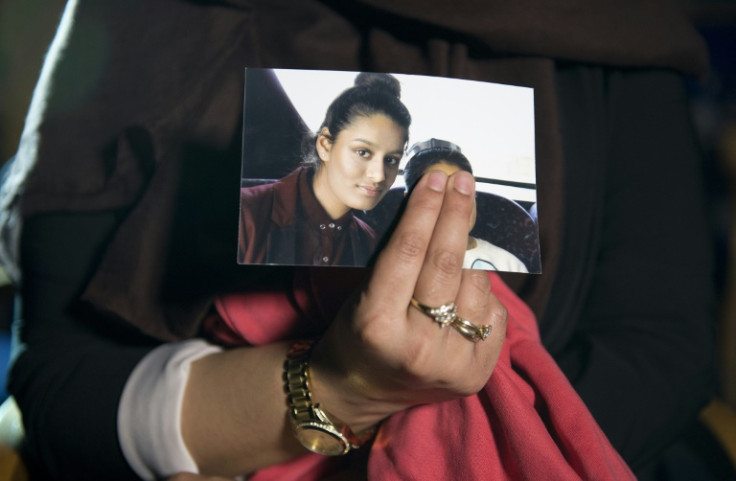Taxpayers Footing ISIS Bride's £250,000 Legal Fees As She Tries To Return To UK

In February 2015, at just 15 years old, Shamima Begum left the UK to join the Islamic State of Iraq and Syria (ISIS).
Years later, in 2019, Begum was found in the al-Roj camp in northern Syria following the defeat of ISIS. From the camp, the former terror bride has made multiple attempts to return to the UK.
This week, Begum lost another appeal against the UK government's decision to strip her of her British citizenship.
"She chose to leave the UK to join a terrorist group of her own free will," said Anthony Glees, a professor of politics and national security expert.
In 2015, the IS online recruitment program was notorious for manipulating impressionable youngsters into supporting its self-proclaimed caliphate.
While she was still in school, CCTV footage showed Begum boarding a flight to Syria alongside her two friends, Kadiza Sultana and Amira Abase.
Reports note that, after joining ISIS alongside Begum, Sultana is thought to have been killed in an airstrike and the whereabouts of Abase is still unknown.
However, Begum, the daughter of Bangladeshi parents who was raised in east London, went on to live under ISIS rule for longer than three years.
Shortly after her arrival to Syria, the now 24-year-old said that she was forced to marry a Dutch member of the terror group - currently being held in a Kurdish detention centre.
During her time as a terror bride, Begum said that she gave birth to three children. All of whom have been killed, she claims.

Despite admitting that she knew she was joining a proscribed organisation, in a bid to win back her UK status, the former ISIS supporter said that she is "ashamed" and regrets her decision.
The Court of Appeal ruled that the former Home Secretary Sajid Javid did not act unlawfully when he stripped Begum of her British citizenship.
According to Begum's lawyers, who have blamed the UK government for failing to protect Begum from online exploitation in 2015, the conditions in the al-Roj camp are at a "critical point" where residents witness "near starvation" and illnesses daily.
In a statement, the lawyers wrote: "The fact of the matter is this - that Shamima, as with other British women and children, is arbitrarily detained in a prison camp in northeast Syria."
"It is not a refugee camp - those detained are unable to leave and the conditions have, with ever greater urgency, been categorised by every international body as well as by the UK courts in Shamima's case itself, as constituting torture and inhuman treatment."
A Home Office spokesperson responded to Begum's citizenship appeal with: "Our priority remains maintaining the safety and security of the UK and we will robustly defend any decision made in doing so."
While the government have promised to prioritise the safety of the UK, security comes at a price.
After being denied entry to the UK, Begum has allegedly received almost £250,000 in legal aid funded by British taxpayers.
If the former terror bride takes her case to the Supreme Court, Head of Costs at Legal Costs Experts Paul Fultcher said: "I can see this reaching £7 million."
"It can only get higher with the way this case is going. It's a huge cost to the taxpayer."
While the Ministry of Justice, which oversees the Legal Aid Agency, insists that "Shamima Begum did not receive a penny of this money," David Spencer, a research director for the Centre for Crime Prevention, said that it is "an outrage Shamima Begum is entitled to such vast sums."
"Actions have consequences and if anyone should pay the price for her poor judgement, it is her, not the law-abiding British taxpayer," Spencer added.
© Copyright IBTimes 2024. All rights reserved.






